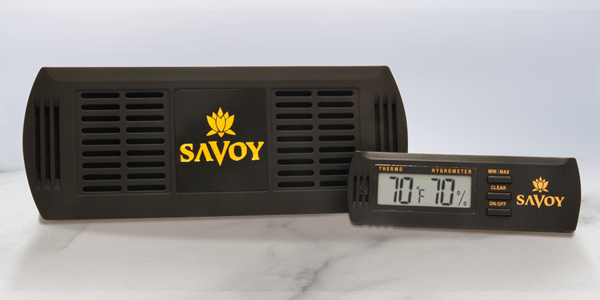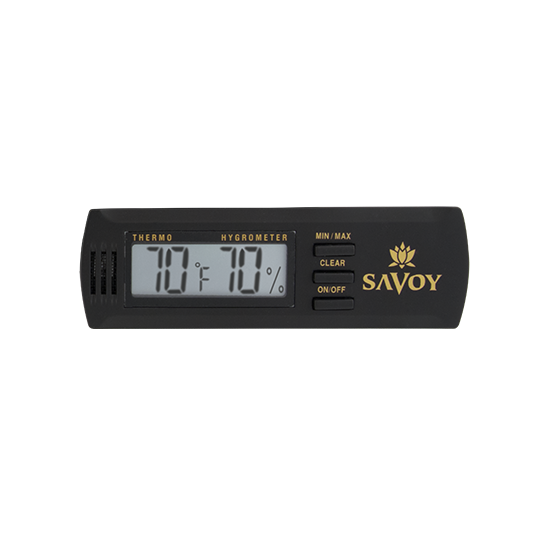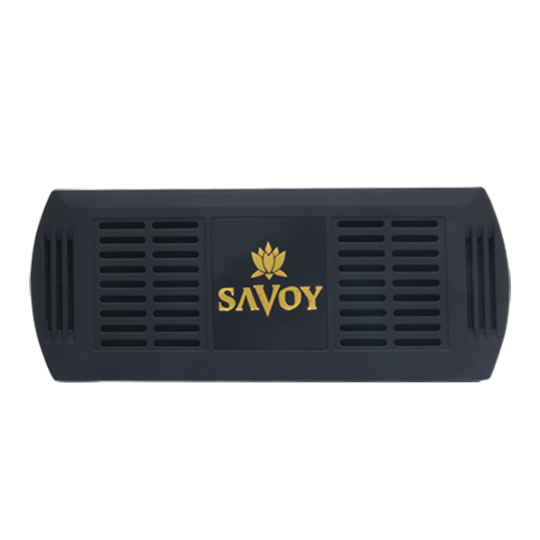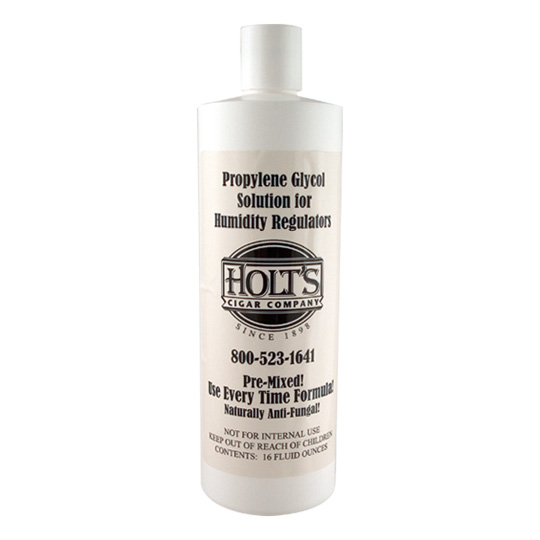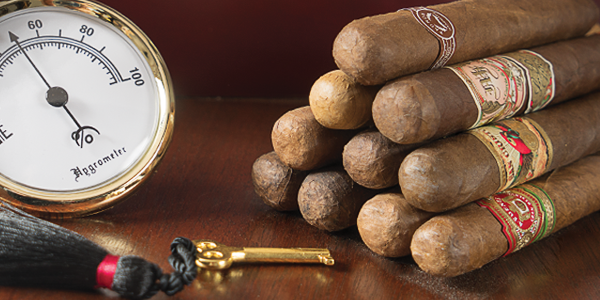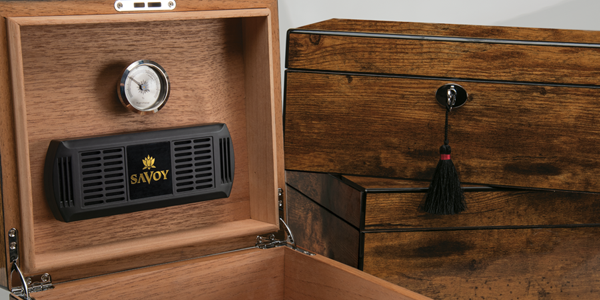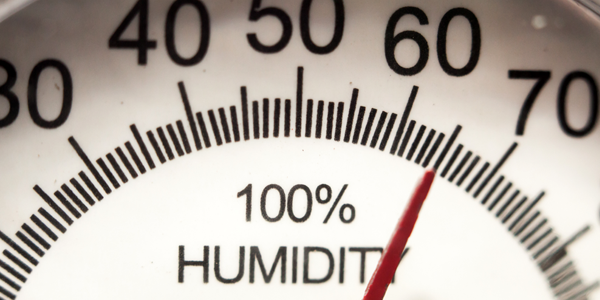What Is Relative Humidity and What Is Best for Your Cigars?
As we head into the thick of winter, we get a lot of questions about what relative humidity is best for cigars. Because humidity levels vary throughout the year, maintaining a consistent humidity is more difficult during the winter if you live in a cold-weather climate and you’ve got the heat cranked up in your man cave or home.
How Humidity Affects Us
Have you ever strolled down a sidewalk in New Orleans in the summer? If you have, you’re acquainted with humidity. The sweltering feeling of moisture wrinkles your clothing from head to toe as your shirt sticks to your skin. Although humidity is ubiquitous and borderline oppressive in certain regions during the summer months, it’s good for your cigars – but in the right amount.
The two primary ingredients in every premium handmade cigar are tobacco and water. You can throw time in, too, if you want the full recipe. The tobaccos used in premium cigars are grown and harvested in warm and moist, mostly tropical climates like the Dominican Republic and Nicaragua. Even the Connecticut River Valley produces amazing Connecticut Shade and Connecticut Broadleaf wrapper varietals, but during the region’s warm and wet months. Harvests end in October for Connecticut Shade tobaccos and mid-November for Broadleaf.
Premium tobaccos are cured – or dried out – after they are harvested. The curing process reduces the chlorophyll content in tobacco and greatly influences the taste of the final product. After curing, moisture is reintroduced during the fermentation and aging of premium tobaccos. And from that point on, humidity plays a crucial and continuous role in a premium cigar up until you smoke it.
What is Relative Humidity?
Let’s take a very brief technical detour. To define relative humidity (RH), we first must understand absolute humidity. Absolute humidity is calculated by taking the mass of water vapor and dividing it by the mass of air at a given temperature. Air can retain more moisture at higher temperatures. Absolute humidity is measured in grams of moisture per cubic meter of air (g/m3).
Relative humidity refers to the ratio of absolute humidity compared to the highest possible humidity based on the current temperature. The air is completely saturated with moisture when the relative humidity reaches 100% – a condition which leads to rain because the air cannot hold any additional moisture. While humans feel most comfortable between 30% and 50% humidity, cigars fare best closer to 70% RH.
The Best Humidity for Storing Cigars
The most common protocol aficionados swear by is the 70/70 rule. Keep your cigars at 70% humidity and 70 degrees Fahrenheit. Your first line of defense in protecting your precious cigar collection is a digital hygrometer. You can measure both temperature and humidity with a digital hygrometer, and they tend to be more accurate than analog gauges, which rely on a coil and needle to measure the humidity. There are other differences between analog and digital hygrometers, like aesthetics. Some cigar lovers prefer the look of an analog hygrometer even though they need to be recalibrated more often.
While the 70/70 rule is safe and easy to follow, it may not always be ideal. Remember, higher temperatures sustain higher levels of moisture. Therefore, as you go up in temperature, you can safely lessen your humidity without negatively impacting your cigars.
Too much humidity can be as equally damaging to premium cigars as too little moisture. We mostly associate damaged cigars with overly dry conditions because a cigar’s wrapper will crack and its construction and burn are noticeably impacted. Too much humidity can lead to mold, an inconsistent burn, and can also cause the wrapper to split. To adjust your humidity levels accordingly, keep the illustration below in mind.

Aging Cigars for a Long Time
If you intend to store your cigars for a longer period of time like several months or years, a lower temperature is recommended. Premium cigars don’t respond well to lots of fluctuation in temperature or humidity. Changes in the conditions inside your humidor can cause your cigars to expand and contract, which has a negative impact on their flavor, construction, and overall integrity.
Cooler temperatures in the 63 to 65-degree range are easier to maintain for a longer period of time. You can boost the humidity up a bit when the temperature is cooler, but we don’t recommend exceeding 72% RH. Your cigars will smoke perfectly as long as you maintain a steady environment between 63 to 70 degrees and 65 to 72% RH. Don’t store your humidor near a source of heat like a vent, on the mantel of a roaring fireplace, or under direct sunlight. A cool and consistent room is best. Cigars that are stored properly will taste amazing after a few months, years, or even decades of aging.

